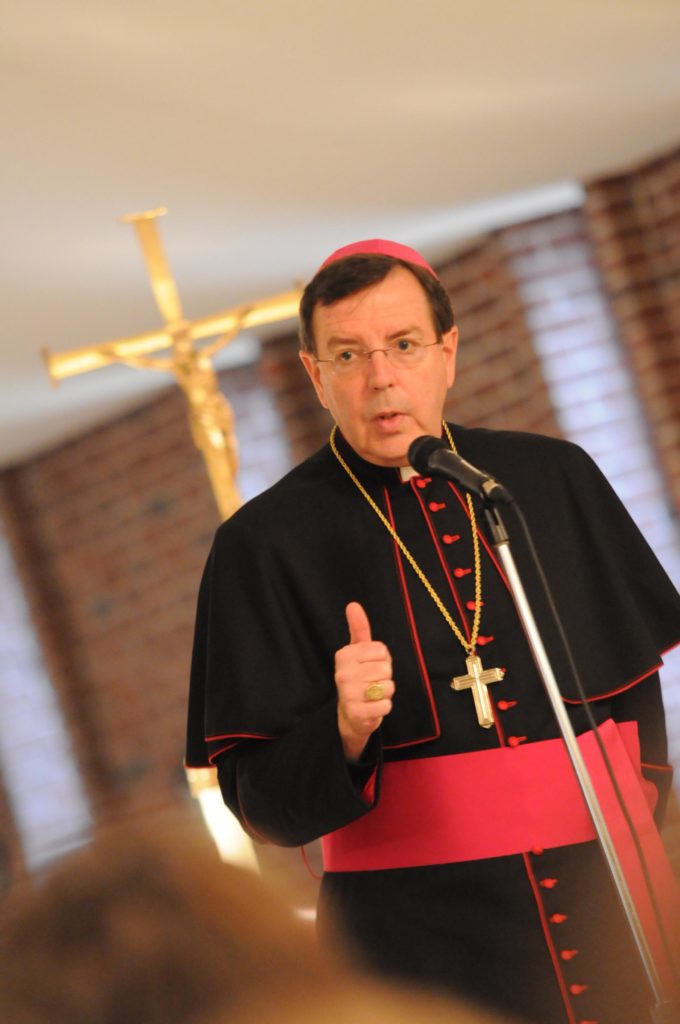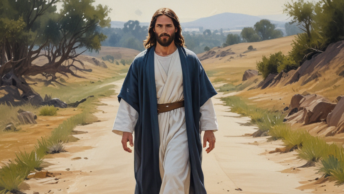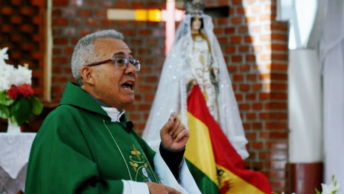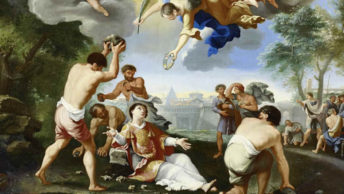 The following criticism was written about one of our U.S. Presidents; see if you can guess which chief executive is being referred to:
The following criticism was written about one of our U.S. Presidents; see if you can guess which chief executive is being referred to:
“The occupant of the presidency is little better than a murderer. He is treacherous in private friendships, a hypocrite in public life, an imposter who has either abandoned all good principles or else never had any.”
Who do you think is being spoken of? Not Barack Obama, or George W. Bush, or Bill Clinton, or Lyndon Johnson, or even Richard Nixon. The subject of this criticism was George Washington. That’s right—our first and perhaps greatest president, who was first in war, first in peace, and first in the hearts of his countrymen, one of the most admirable and beloved men in all human history, was scorned and despised by at least of a few of his contemporaries. It’s impossible to satisfy everyone—and sometimes we attract the most severe criticism when we’re taking a moral stance and upholding what’s right.
We recently had a good example of this in the Archdiocese of Detroit. In response to growing efforts to legalize so-called “same sex marriages,” Archbishop Vigneron announced that Catholics who support this morally-impossible idea should not come forward to receive Holy Communion at Mass. In doing so, he was merely upholding the teaching of the Church on the nature and sanctity of marriage, and on the need to be in a state of grace in order to receive the Eucharist. Simply put, homosexual activity is a mortal sin, and those who support a so-called “right” to commit mortal sin are themselves not properly disposed for Holy Communion. In response, last Sunday’s Detroit Free Press had many letters to the editor regarding the Archbishop’s statement. A few supported his effort to provide clear moral leadership; many letters, however, denounced it, with several of the letter-writers foolishly and misguidedly insisting that Jesus accepts everyone without requiring any sort of repentance or moral conversion. I applaud the Archbishop for defending the Church’s teaching in his capacity as chief shepherd of the Archdiocese, and I pray for the enlightenment of those who—whether out of arrogance, or sincere but mistaken good will—criticize or reject him for speaking the truth.
St. Paul wrote that “All who want to live religiously in Christ Jesus will be persecuted” (2 Tim. 3:12), and at the Last Supper Jesus specifically applied this warning to those He appointed to lead the Church, for He told His apostles, “If they persecuted Me, they will also persecute you” (Jn. 15:20). The fact that, as disciples of Jesus, we will sometimes face criticism, opposition, or even persecution doesn’t excuse us from our moral obligations, including that of defending the truth and reflecting the light of Christ in a world darkened by error and sin. Each one of us will one day be judged by Jesus, and if we have denied Him out of fear or the desire for worldly approval, He will deny us a place in His Kingdom. If, however, we can point to our scars and show Him all the times we were mocked or criticized for upholding the truth in His Name, Our Lord will recognize us as one of His true followers, and welcome us into eternal joy. As St. Peter wrote, “If you are patient when you suffer for doing what is good, this is a grace before God” (1 Pt. 2:20)—and being open to this sort of grace will help us attain eternal life.
In the scriptures, we see that Saints Paul and Barnabas encountered fierce opposition when preaching the Gospel at Antioch in Pisidia—but though they had to leave that city, their efforts were not in vain, because many persons accepted the truth, and eventually became part of that great multitude St. John describes in the Book of Revelation. As one of the heavenly elders explained, “These are the ones who have survived the time of great distress; they have washed their robes and made them white in the Blood of the Lamb.” Jesus is not only the Lamb of God; He is also the Good Shepherd, and in the Gospel He promises us that those who live as part of His flock will never perish or be snatched away by the devil or by his agents in this world.
Because of the theme of today’s Gospel, this Fourth Sunday of Easter is also unofficially known as “Good Shepherd Sunday,” and so the Church quite naturally observes today as World Vocations Day—a time for all of us to renew our efforts to pray for and promote vocations, including vocations as lay persons, Church ministers, deacons, and religious. In particular, we’re stressing vocations to the priesthood—in part, because of the growing shortage of priests within the Archdiocese of Detroit and other dioceses across the United States. The shortage is becoming severe, and in the short-term will only become worse. Many priests, while happy and fulfilled in their ministry, are stretched thin or overworked, and are also sometimes under-appreciated and misunderstood or wrongly criticized. We try not to complain about this; it goes with the territory—but we do fear for the future if there isn’t a turnaround soon in terms of the numbers of young and middle-aged men entering the seminary.
All of us—whether priests, deacons, religious brothers and sisters, or lay persons—have an urgent obligation to pray for and promote religious vocations, and all of us, without exception, are expected by Jesus to bear witness to His truth, regardless of any possible criticism, rejection, or persecution. Which do we value more: the temporary approval of this passing world, or the lasting gratitude and blessing of our Savior and Judge? Each of us would do well to reflect on the words of Psalm 1: “Happy the one who follows not the counsel of the wicked, nor walks in the way of sinners, nor sits in the company of the insolent, but delights in the law of the Lord and meditates on His law day and night. He is like a tree planted near running water, that yields its fruit in due season, and whose leaves never fade. Not so the wicked, not so; they are like chaff that the wind drives away. Therefore in judgment the wicked shall not stand, nor shall sinners, in the assembly of the just. For the Lord watches over the way of the just, but the way of wicked vanishes.” If we’ve chosen to travel the way of the just, the criticism of this world may sting, but it cannot truly harm us—and whatever price we may have to pay as Christ’s followers will seem as nothing when we arrive at our true heavenly home.








